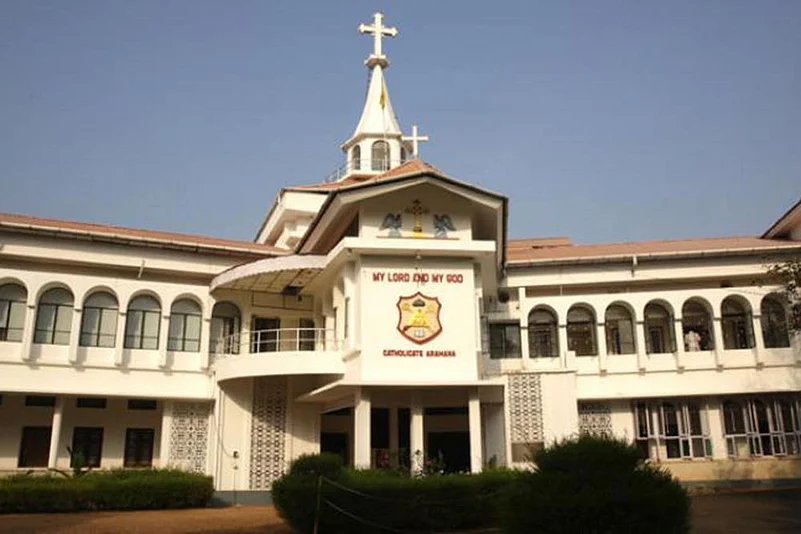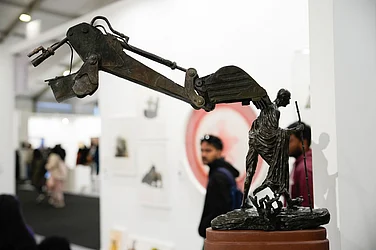“If we confess our sins, he is faithful and just to forgive us our sins, and to cleanse us from all unrighteousness.” —1 John 1:9
Seven are the sacraments, and not least among them is confession. It is a believer’s refuge, to have her sins forgiven and absolved. What, then, if the confessional should itself become the seat of sin? Such is the allegation at the crux of a scandal that is simmering in Kerala’s Malankara Orthodox Church. A lay believer claims that his wife’s confessor used the details of a scandalous confession to blackmail her, and that he and several other priests went on to sexually exploit her for years. The scandal broke recently when an audio clip of the husband discussing the issue with an official over the telephone went viral on social media.
In the audio clip, the husband, a resident of Thiruvalla in Pathanamthitta district, narrates his version of events as follows. In February, he had asked his wife about odd transactions in a recent bank statement, including a hotel bill, that didn’t tally with her accounts of where she had been at the time. She broke down and later told him what he alleges to be “only 20 per cent” of the details. A priest in her neighbourhood had raped her before her marriage—and “he is still using her”. Later, around the time of her daughter’s baptism, she was struck by guilt and confessed in church. But the confessor, using the threat of revealing all to her husband, coerced her into sex. He then shared photographs of the act with another priest, who also started blackmailing her. The husband claims to have evidence that at least five priests, including one based in Delhi, were eventually involved. They would keep in regular contact with her and arrange rendezvous like the one at the hotel.
Emphasising his faith, the husband says he approached a bishop to set in motion the Church’s internal disciplinary process. Acknowledging the complaint, the Church issued a statement on June 26 saying, “If the accused priests are found guilty, appropriate action will be taken against them. There will be no attempt to shield the guilty or victimise the innocent. Those who have raised the charge will get the chance to prove their case.”
The husband, who finds the prospect of the priests being punished with a six-month suspension from the bishop unsatisfactory, claims he has been intimidated and discouraged from pursuing the matter further. “Some people from the Church are threatening me. Some are trying to persuade me to withdraw. Even some celebrities are calling me. Now they are lodging counter-complaints against me...but I have raw evidence, all documents.”
It seems that the couple have not begun to pursue legal avenues; when contacted, the Thiruvalla DySP told Outlook that the police were aware of the incident but no case had been filed as the aggrieved party had not yet filed any complaint. But there may be other considerations at play. According to journalist and social commentator Roy Mathew, “The police are not filing a suo motu case as the incumbent LDF government is known to be close to the Orthodox church, which is believed to have helped the ruling coalition win the recent Chengannur by-election”
No church is new to such issues. Sister Jesme, former principal of St Mary’s College, Thrissur, stresses that confession is the crucial factor here, and that this case only came to light due to social media. “I used to hear from girls in college about priests asking details about their sexual acts when they would try to confess it in minimum words. The priests asked questions such as how did you do it, how did you respond to it etc., which made these girls really uncomfortable,” she says. Narrating her own experience, she recounts, “I remember how shocked I was when a priest started talking to me about menstrual blood when I was confessing about getting angry due to exam stress.”
Is there any escape from such predation, with confession considered an unavoidable duty in many Christian denominations? Some churches allow their flock to confess directly to God, cutting out the middleman, but most don’t. A debate that took place in Australia recently may show one way forward: an inquiry resulted in a Royal Commission recommending that Catholic priests be legally bound to report confessions of sexual abuse of children. In the face of fierce resistance from the Church—the archbishop of Melbourne would reportedly prefer jail to violating the sanctity of confession—three states have adopted this into law thus far. “It’s a progressive decision,” says Jesme.
By Thufail P.T. & Satata Karmakar


























